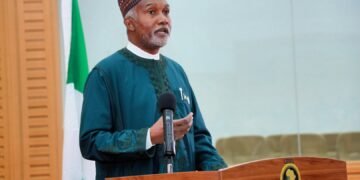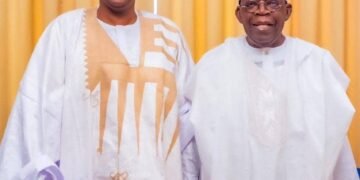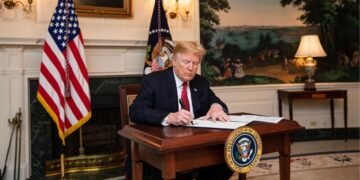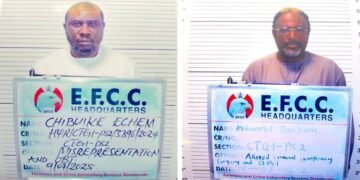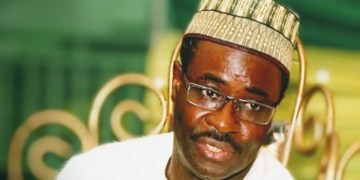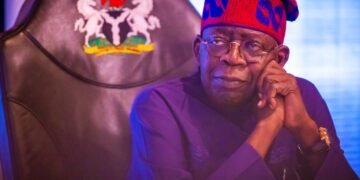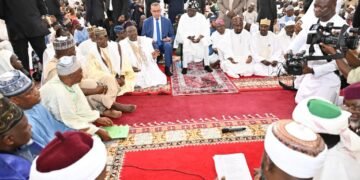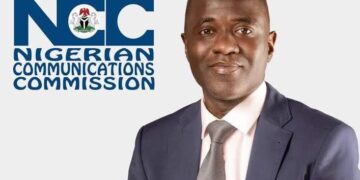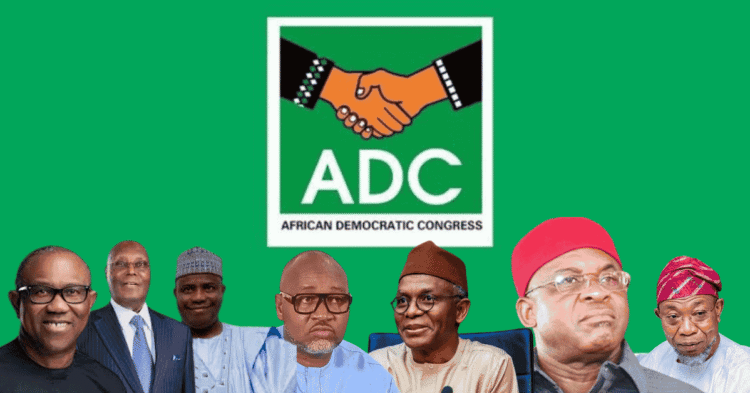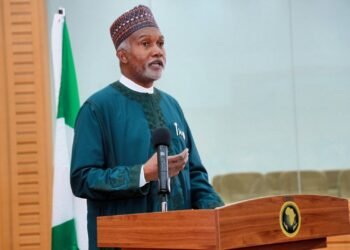By Dayo Dare
The African Democratic Congress (ADC) was founded in 2005 by Mr. Ralph Nwosu. Originally known as the Alliance for Democratic Change, the party participated in its first general election in 2007 after being registered by INEC in 2006. It gained some national attention when it won seats in the National Assembly. Since then, the party has produced several lawmakers, including Hon. Leke Abejide and Hon. Salman Idris, who later defected to the All Progressives Congress (APC). For the 2023 presidential election, the ADC fielded Ibe Kachikwu, though he was unsuccessful at the polls.
In recent times, the ADC has found itself at the center of a new political coalition. The party collapsed its structure to allow for the integration of new leadership, driven by an opposition alliance led by former Vice President Atiku Abubakar. The coalition adopted the ADC as its platform for challenging President Bola Tinubu’s anticipated re-election bid in 2027.
As part of this restructuring, former Senate President David Mark was named Interim National Chairman, and ex-Osun State Governor Rauf Aregbesola was appointed Interim National Secretary. Former Minister of Sports Bolaji Abdullahi assumed the role of Interim National Publicity Secretary. Following this transition, Mr. Nwosu issued a statement announcing the resignation of all existing party leaders to make way for the interim executive.
The former National Publicity Secretary of the ADC, Mabel Oboh, said on Sunday that the coalition aims to wrestle power from the ruling APC.
However, the coalition has not been without internal resistance. Dumebi Kachikwu, the ADC’s 2023 presidential candidate, slammed the move, labeling Atiku and his co-conspirators within the ADC as “a bunch of greedy old men.” State-level leaders such as Etimbuk Umoh (Akwa Ibom) and Mohammed Khala (Borno) say they are still waiting for formal directives from the party leadership.
Despite dissent in some quarters, momentum for the coalition appears to be building. In states like Gombe, political groups are already aligning with the ADC ahead of the 2027 elections. State chairmen from Edo, Benue, and several others have pledged loyalty to the new leadership. Benue State chairman Celestine Orbunde emphasized that Kachikwu was expelled from the party and no longer has influence over its decisions.
He stated, “So, if the North Central Zonal Chairman, who is from Benue State, is aware of the new order, why will the Benue chapter not be involved? The Benue State chapter of ADC is fully in support of the new leaders. The problem is that everyone wants to be carried along, whereas Dumebi, the party’s presidential candidate in 2023, was expelled from the party.”
Despite this growing realignment, the Presidency has dismissed the coalition as a non-threat. Special Adviser to the President on Policy Communication, Daniel Bwala, criticized the opposition, claiming it lacks the vision or substance to challenge the current administration.
Bwala said: “What I still find intriguing is that this coalition of internally displaced politicians has not been able to summon the courage to come up with alternative facts, alternative policies, or alternative programmes. Throughout the interview you had with Peter Obi, what I observed is that he has not been able to counter or disagree, in the real sense of the word, with the policies of the present government. They have not brought a single alternative policy to the table. All they do is criticise and issue press statements. The truth is, they lack vision and have not shown Nigerians they truly care.”
In his view, the coalition is unstable and won’t survive the next six months.
The ADC’s transformation into a coalition vessel reflects a strategic opposition realignment aimed at taking on President Tinubu in 2027. For now there is yet to be any major announced but this new coalition marks a power shift in the political climate.

